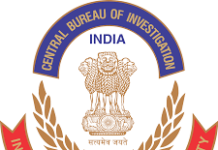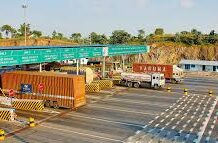
Finance Minister Nirmala Sitharaman proposed a special amnesty scheme on Friday in an effort to provide relief to small and medium taxpayers in the wake of the second wave of the coronavirus pandemic. The decision was made at the 43rd meeting of the Goods and Services Tax (GST) Council.
“To provide relief to small taxpayers, an amnesty scheme has been recommended for reducing late fee,” finance minister said. Touting it as the “biggest decision taken today” Sitharaman explained that the new scheme is likely to benefit around 89% of those who pay GST. “Taxpayers can file pending returns and avail benefits of scheme with reduced late fee. Even late fee has been rationalized,” she further mentioned.
“The maximum amount of late fee has been reduced and will come into effect from future tax periods,” FM added.
“As expected the GST Council has approved an Amnesty Scheme on waiver or reduction of Late Fees for Late filing of GSTR 1 and GSTR 3B. However it would have been fair if the late fees which is refunded for those who have already paid and filed the return. It is important to note that the GST Portal does not allow filing of GST Returns before payment of Late fees,” said Vivek Jalan, Partner, Tax Connect Advisory Services LLP.
Several trade associations have asked the government to extend the deadline for filing GST returns. The Confederation of All India Traders (CAIT), a trade body, had previously written to the finance minister, urging her to extend the deadline for filing various GSTR returns under the GST Act and Rules until August, without late fees or interest.
According to sources, states ravaged by the second wave of the coronavirus pandemic urged the Centre to seek tax exemptions on a variety of medicines, medical devices, and health services. The GST Council recommended that a group of ministers (GoM) be formed to review the proposal and make a recommendation within 10 days. “This seems like a missed opportunity as even a middle path of reducing the GST rate to 5%, even on an interim basis, instead of a complete exemption might have been beneficial to many,” said Mahesh Jaising, Partner, Deloitte India.
The GST Council removed the duty on the import of Amphotericin-B, a medication used to treat black fungus. The panel also extended the donation exemption on imported COVID-related supplies until August 31, according to Nirmala Sitharaman.
“The decision to allow exemption on import of COVID related products even for paid imports, where the import is meant for donation is a welcome one. This brings parity on the imports regardless if the same is imported free of cost or paid for, as long as it is for donation purposes,” said Mahesh Jaising.
The GST panel decided that the Centre would borrow Rs. 1.58 lakh crore and pass it on to the states to compensate for the revenue shortfall caused by the GST implementation. The Council will convene a special session soon to discuss extending the five-year GST shortfall compensation period to states beyond 2022.








